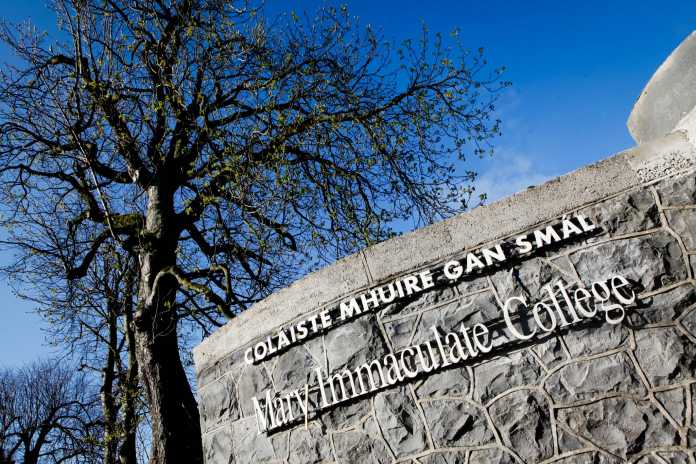
MARY Immaculate College (MIC) Applied Linguistics researcher, Dr Anne O’Keeffe, has been awarded significant funding to investigate whether the sudden shift to virtual communications in the workplace has impacted how we communicate.
Due to the ‘digital pivot’ brought about by the COVID-19 pandemic, the world has learned that online operation in both personal and professional settings is entirely workable, and indeed can make some processes much quicker and more efficient. The shift to the virtual space can be seen in such things as the changing interactions between businesses and their customers, the large-scale online operation in the education sector and fan interaction and involvement in sporting and cultural events through virtual means. As we move into a post-pandemic time, this research, led by Dr Anne O’Keeffe (Mary Immaculate College) and Dr Dawn Knight (Cardiff University) will take stock of whether virtual communication is equitable to pre-COVID norms.
The project will first examine workplace communications and online interactions to determine the effectiveness of different forms of interaction and identify potential barriers to effective communication. The research not only aims to identify the success or failure of communication but also what causes it to succeed or fail, including both verbal and non-verbal cues such as pitch, facial expression, accompanying gesture or humour. This will mean investigating possible barriers such as age, gender and ethnicity. It hopes to be able to answer questions like: Do bosses interrupt more in online meetings? Do women speak less? Are junior colleagues or non-native speakers of English less likely to make a point? What gestures can help in gaining access to the floor? Is it a good idea to start a meeting with a phase of informal chat? Is there any humour in online meetings?
The findings of this element will lead to the creation of awareness-raising tools and training materials that will be co-designed based on the needs of project partners.
The second element will aim to enable future research into spoken language by developing technical protocols for capturing and analysing interaction multi-modally, such as how to transcribe a gesture and connect it with an utterance. The researchers hope to produce an online archive which can be used to standardise ways of approaching questions about language in an accessible way for other researchers and non-technical experts in the Humanities.
The research has received major Irish and British funding, under the UK-Ireland Collaboration in the Digital Humanities research grants, with €270,000 awarded by the Irish Research Council (IRC) and a further £390,000 from the British based Arts & Humanities Research Council (AHRC). This collaboration is the latest in study from leading researchers in Ireland and the UK into analysing the effectiveness in discourse and aims to propose the next generation of analytical frameworks for analysing this new type of discourse before then making these frameworks available to all arts and humanities research and end user communities. It is hoped this will lead to a step change in our ability to develop equality of access in online communication. The research includes the cooperation of several international partners, including Cambridge University Press, Public Health Wales, Lime Tree Theatre, Auctioneera Estate Agency and the Petroleum Technology Company.
Dr Anne O’Keeffe, Senior Lecturer in Applied Linguistics and co-lead Principal Investigator of the research, said: “It is a great honour to be one of the successful bids in this significant British-Irish Digital Humanities research funding call. Over the years, MIC has built up a strong research profile in corpus linguistics across an international network within the IVACS research centre. This bid could not have happened without the collaborative relationship that we have built up with our partner institutions in this bid, Cardiff University (co-lead), University of Limerick, University College Dublin, University of Nottingham, Swansea University and University of Aberdeen. We hope this project will also lead to practical training materials for our partners in business, culture and education sectors. Post-COVID, the digital space will continue to be a workplace for meetings and events and it is critical that we better understand what successful communication means in this medium”.
The funding from the IRC and the AHRC, overall worth €637,000, is one of the largest funding allocations made to MIC research from the Irish Research Council. Welcoming the funding and the research, Dr Richard Butler, Director of Research at MIC said: “This project will make a major advance in our intellectual understanding of online interactions today in Ireland and the United Kingdom. While many existing studies have focused on spoken language, Dr Anne O’Keeffe and her team of experts will shine a new light on the other modes of communication that we all engage in on a daily basis – for example gestures, gazes, and nods. Furthermore, the design of the project speaks clearly to the broader objectives of the Irish Research Council and its UK equivalent of deepening Irish-British research networks in the years ahead.”
Research begins August 2021 and is expected to take two and a half years.


